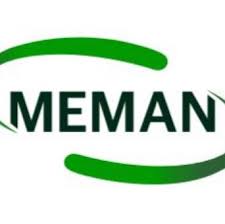Marketers Source 251m Litres Of Petrol From Dangote Refinery
Mohammed Shosanya
The Major Energy Marketers Association of Nigeria (MEMAN),says its members sourced 251,797,142 litres of petrol from the Dangote Refinery,between September 16 and November 24, 2024.
Its Chief Executive Officer,Clement Isong,who disclosed this at a quarterly webinar organised by the association for journalists,said the total volumes of petrol sourced so far includes 148,463,142 litres loaded by trucks at the gantry and 103,334,000 litres delivered to the Apapa depots through vessels.
He said the association’s members are still loading fuel at the Dangote refinery.
He was represented by Ogechi Nkwoji, Head of Economic Intelligence Research Regulation,who explained that while MEMAN members have licenses to import petrol introduced by the Nigerian Midstream and Downstream Petroleum Regulatory Authority (NMDPRA), but have in recent time relied on local supply from Dangote Refinery due to the competitive market framework already in place.
She noted that products lifted from Dangote Refinery were transported through trucks and vessels to marketers’ facilities in Lagos, highlighting the operational flexibility within the supply chain.
She examined the key factors affecting the cost of delivering petroleum products across Nigeria, providing an in-depth analysis of the elements shaping pricing.
She also highlighted MEMAN’s efforts to foster market stability and boost consumer confidence.
Speaking, James Gooder,Vice President of Crude Oil at Argus Media, highlighted the critical role of logistics and pricing factors in determining the final cost of Premium Motor Spirit (PMS).
His presentation,titled ‘Market Trends, Transparency, and Fair Pricing’, focused on the various factors impacting petroleum prices in the Nigerian market.
He emphasised the importance of jetty infrastructure,vessel capacity and exchange rate stability in shaping the pricing landscape of petroleum products in Nigeria.
He pointed out that one of the main challenges was the limited capacity of the country’s jetties to accommodate larger vessels.
He added:“The larger your draft, the larger the vessel you can bring in.This allows for economies of scale, which ultimately lead to lower costs per unit of product delivered.”
He noted that many jetties, particularly in Warri and Calabar,are restricted to draft sizes of around five meters, which limits the size of vessels that can dock there.
He said that this constraint leads to higher logistics costs, which in turn impacts the price of petrol at the pump.
Gooder stressed that addressing these infrastructure limitations is crucial to reducing costs,adding that:“Investing in the deepening of these drafts and improving the channels will boost business in these areas and accommodate larger vessels”
Acknowledging that major marketers have attempted to mitigate logistics challenges by sharing vessels, Gooder emphasised that this is only a partial solution.
Besides, Gooder discussed the key factors affecting the landed cost of PMS, primarily the exchange rate and the cost of imported products.
He explained that the landinh cost is calculated daily, based on the spot price of products and the prevailing exchange rate.
Gooder observed that from October to November, the exchange rate between the Naira and the dollar had remained stable.
He said that coupled with a global decline in crude oil and gasoline prices, this stability had contributed to a reduction in the landed cost of petrol.
“When the exchange rate is stable and the cost of the product decreases, both the landed cost and the pump price follow suit,” Gooder added.
He cautioned against viewing price reductions as act of generosity by marketers.
The expert said, “It’s not about magnanimity. Prices drop because the key variables in the cost calculation are favourable.
“In addition to the exchange rate and product costs, other charges also influence the final price of PMS, including vessel charges, Nigerian Ports Authority (NPA) fees, and expenses related to the Nigerian Maritime Administration and Safety Agency (NIMASA).”
Gooder noted that vessel charges alone had decreased from 60,000 dollars to 50,000 dollars,which is a significant reduction.


